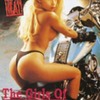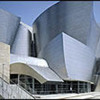ROB LONG
If you Google the words "lots and lots of Hollywood Republicans," you get about 58,900 hits, which just goes to show you that the Internet is really one big swamp of wishful thinking, political and pornographic. Because the truth is, even if you allot one Google hit per Hollywood Republican, you've still got about 58,885 hits too many.
About every four years, Republican fundraisers and strategists lose contact with reality and declare "impressive inroads" into the Hollywood community. "A lot of Hollywood stars and industry professionals are really supportive of the Republican agenda," some glassy-eyed Republican mouthpiece will declare, with Moonie-like cheerfulness. "I've gotten a lot of phone calls from some major names in the business," some Republican fantasist will chirp to some lazy, gullible reporter, "and let me tell you, they're interested in knowing just what this party is all about!"
It's a bit like poor Robert McFarlane, back in the Reagan administration, who arrived in Tehran on a secret mission to make "impressive inroads" with "Iranian moderates," clutching a Bible and a cake in the shape of a key. Except in McFarlane's case, there probably were some moderates around there, somewhere. And they probably ate the cake, too, since Persians are famous for their sweet tooth and aren't as obsessed as some of us out here in Hollywood are about sugar and carbs.
And of course, about every four years, the lumbering lard-draggers at the New York Times bestir themselves to write an article headlined, "Is Hollywood Still a One-Party TinselTown?"
Short answer: yes. Yes.
Why this is so, is an interesting question.
The easy answer, like all easy answers, is money. For most Hollywood celebrities and executives, money cascades into the pockets with such torrential velocity that it ceases to have any real meaning. It's impossible to make a traditional Republican-cloth-coat appeal to someone wearing a $15,000 chartreuse leather suit.
The most incendiary political document ever printed isn't the Declaration of Independence, it's an ordinary pay stub. On it is declared what you were originally paid, what the government snuck out when you weren't looking, and what you're left with. The pay stub is, in fact, the most powerful direct-mail piece in the Republican arsenal.
Most Hollywood types, of course, never see a pay stub. Their paycheck makes a lot of stops along its path to the original payee: first to the agent, who skims his 10 percent; then to the manager, who slices his 15; now to the lawyer, 5 percent please thank you; one last stop at the business manager, who collects his 5, pays Uncle Sam, and reissues a check for an amount roughly 80 percent smaller than it was at the start.
It may also have something to do with the vaguely geriatric concept of "hard work," which for most people involves either lifting and/or moving and/or welding heavy, sharp objects; or toiling in some airless cubicle in desperate need of money. It does not, unlike Hollywood, involve yoga and $1,000 shirts. Put it this way: The grips, dolly-pushers, set-construction guys, and electricians on any movie set tend to be on the rightward side of the political discussion. The other folks, who tend to sit in their trailers a lot, drinking bottles of French water and talking on tiny cellphones, are on the left.
I once made this point to a lefty actor friend of mine. He scoffed. "You know the real reason the crew guys are so right-wing?" he asked. "They all live, like, way out of town, out past the Valley, out beyond the San Gabriels, and they drive, like, I don't know, an hour or two to work every day, each way. So they listen to a lot of that right-wing talk radio, all that Rush Limbaugh stuff, and it just turns them into right-wing kooks."
"Why do they live so far away?" I asked.
"Because they can't afford to live any closer."
"Why?"
"Because they don't get paid much."
"Why?"
"Because actors and directors and producers get all the money."
"You mean all of those liberal Democrat actors and directors and producers?"
"Just because they're liberal," my friend said, "doesn't mean they're not rat bastards."
Which brings us to the real reason Hollywood is a one-party town. Let me tell you a story: Recently, the president of a large division of a large studio was given his walking papers. Nothing personal, of course "” the guy was good at his job (or, more accurately, as good as anyone else would be, tasked with the same pointless responsibilities) "” but the studio chairman had just installed a new president of the division under which the fired guy's division nested, and the new guy wanted to bring in fresh blood.
Usually, the new guy runs a bony finger down the organization chart and silently ticks off the names of everyone senior enough to gun for his job and fires them, thus ensuring that the new team running the studio has one powerful captain surrounded by terrified eunuchs. But firing people costs money "” there are contracts, you see, and stock options "” so the new guy has to be very careful to fire only those employees who pose an actual threat, by dint of their intelligence or courage or originality or some other personality defect, and not waste money on the drones.
So our guy's out and he knows it. He's not bitter at all. Being fired, obviously, is proof of his value; if he hadn't been good at his job, they would have promoted him. But he is more than a little broke. He has a house in the Riviera section of the Palisades (the best address in town), a vacation place in Telluride, and a wife who has confused "having a job" with "writing a novel." He needs a steady, fat stream of cash coming in to match the steady, slightly fatter stream of money flowing out, mostly to the American Express corporation.
The financial ace up his tattered sleeve is a bushel of stock options that are, in our bubble-economy parlance, "in the money." So right after he gets his walking papers he calls up his old friend, the corporate treasurer, in New York. "Hey, buddy," he probably puts it, "you and I go way back, we're pals, our wives and kids know each other . . . I've got these options I want to cash in. I know you can't legally tell me exactly what to do, but I'd appreciate it, since we've been friends for so long, if you'd indicate to me if I should exercise them now, or if the rumors I hear are true and there's going to be a buyout of the studio, thus increasing their value tenfold, and making me a very rich man. A rich, retired man. What do you say, pal o' mine?"
There is a long pause on the line. And then the corporate treasurer says, "My friend, I shouldn't tell you this, but just because you're you, I'll tell you unequivocally, that it doesn't matter at all."
"So I should exercise the options today?"
"I'm telling you that it won't matter one way or the other."
So the guy exercises his options. And it did matter one way or the other. The following Monday, a large media conglomerate announced a buyout of the studio, increasing the share price by a factor of ten, then, a few months later, by a factor of fifteen. Personally, I like to think that the corporate treasurer had the buyout-agreement documents on his desk while he was telling his old friend, 3,000 miles away, that it "won't matter one way or the other."
That's the way we operate. We're cruel, sure. But we're subtle.
So why didn't the treasurer tell his friend to hold on to his options? One possible explanation: It would be illegal to do so and corporate treasurers are notoriously honest.
Done laughing? Good. Let's get to the real reason he didn't: He's mean. He's a mean, jealous guy and he didn't want his "best friend" to be too much richer than he. A little richer, okay. A lot richer "” and we're apparently talking in the tens of millions, here "” not okay.
Also, he knows that in Hollywood behavior of this kind has no consequences. Those two guys, it should be noted, are still close friends. Sure, they might have hit a rough patch around, say, the time the stock price hit $108 per share (up from its quaintly respectable option price of $6), but they've worked through it, see? The definition of "friend" is so elastic in Hollywood that it includes the definition of "enemy." This town is so small that everyone eventually brutalizes everyone else. We're like rats in a coffee can: nowhere to go but at each other.
Fear, then, is what keeps us marching in lockstep. Hollywood liberalism isn't so much a matter of conviction as it is of keeping one's head down. Any form of eccentricity isn't encouraged unless enough people are already doing it, which sort of contradicts the meaning of "eccentric" in the first place, and leads to unpleasant things like thousands of Mercedes-Benz SUVs on the road, green-tea pills, and Howard Dean yard signs.
It's also, on a spiritual level, a form of bet-hedging. Say what you like about the Democratic-party agenda "” which is, essentially, all about having peaceful U.N.-sanctioned gay weddings in the Arctic National Wildlife Refuge "” it's a nice agenda, for nice people. It's idealistic and generous and childishly hopeful, and if you've spent all day lying on the telephone and screwing your client out of his money and yelling at your assistant for bringing you the wrong kind of water and paying your Guatemalan maid sub-minimum wages, then maybe you, too, might need a little John Kerry in your life to make you feel good about yourself.
And isn't that what Hollywood is all about? Feeling good about yourself?
Don't bother bringing the Bible and the cake. The Democratic party has already been here, with something much more valuable.
Mr. Long is an NR contributing editor and author of Conversations with My Agent.




